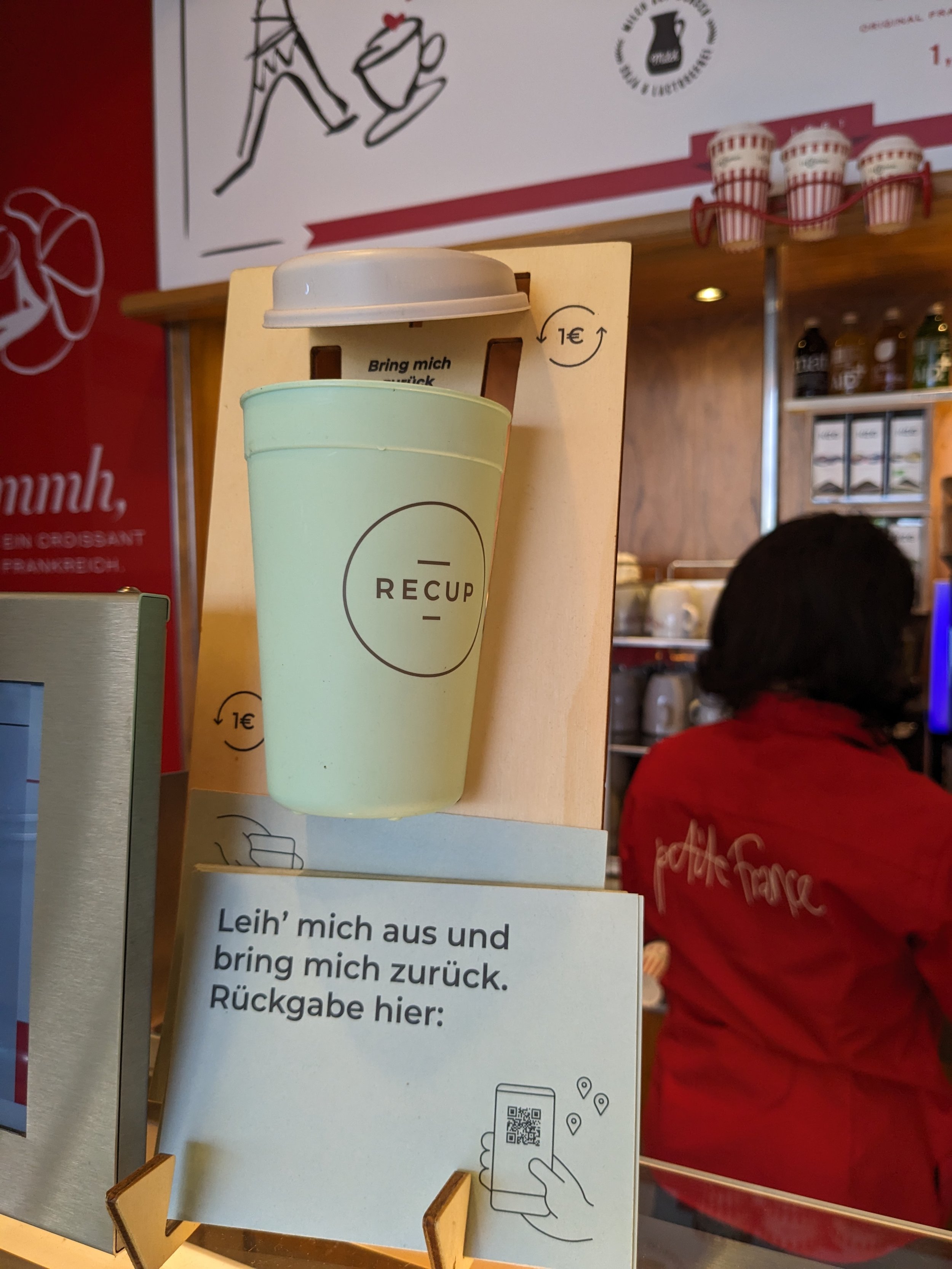Sustainability is Sexy Abroad
My partner and I traveled to seven different countries in Northern Europe throughout July 2023 and here are some observations.
I was excited to travel to Europe knowing that I would surely witness some sustainability practices that I could bring home with me to California.
Countries visited: France, Belgium, The Netherlands, Germany, Denmark, Sweden and Norway
Compostable and Reusable
The majority of restaurants we visited during our thirty-day trip from Paris to Oslo provided wooden utensils, paper or agave straws and non-lined, fiber-based take away containers. It is clear that there has been a much broader mindset shift in this area of the world compared to California, where a lot of restaurants will give you single use plastic or bio-plastic utensils and straws with your order even when you ask them not to. It really shows the importance of supporting campaigns like ‘Skip the Stuff’ and Surfrider Foundation’s Ocean Friendly Restaurant Program. It’s going to take all of us, businesses and consumers, to move our legislation and our practices away from plastics and towards biodegradable and reusable choices.
In Germany we found a great reusable container and to-go order program called ‘Recup’. At a lovely vegan restaurant in Hamburg, The Vegan Eagle, they offered us a ‘Rebowl’ for our take away order and I had to try it to see what it would be. There are over 21,000 dispense and return locations for Rebowls and Recups throughout Germany and this keeps thousands of disposable containers out of the landfill each year and tons of CO2 emissions from being created. You can learn more about the program and its impacts here. San Diego has seen a few programs providing reusable to-go container options, but we need more buy-in from local businesses and consumers. Check out Pit & Seed’s meal prep and ReVessel’s partnership with The Plot in Oceanside for examples of how we can do things differently. These programs have viability when we support them and show that as consumers, we want a better option.
Renewable Energy
California’s renewable energy production percentage in 2022 was a respectable 49% against the 21.5% national average. The countries we visited ranged from 25.3% in France to a whopping 92% of total energy production in Norway thanks to its extensive network of hydropower resources. The use of renewables was evident throughout the trip on every train ride between countries with rows of wind turbines and solar farms littering the countrysides.
Transportation
From widely accessible public transportation systems, bike-friendly infrastructure and electric vehicle incentives, Europe is leagues ahead of most areas of the world, boasting all of the most recognized countries leading sustainable transportation initiatives. The Netherlands, Sweden, Belgium, Luxembourg and Denmark rank highest in fast-tracking green transportation initiatives and infrastructure according to a 2022 analysis. We utilized the public transportation systems, including trams, undergrounds, busses and biking in each country we visited and overall, the available options were easy to use and made daily travel a breeze. We also used rail passes to travel via train between countries and it was a great way to see the countryside and avoid excess emissions.
Here are a few highlights of our green transportation experiences abroad:
-Easy-to-use undergrounds in Paris, Amsterdam, Denmark and Sweden.
-Straightforward city-to-city train travel in Belgium from Brussels to Bruges.
-Bike infrastructure in Amsterdam including underground bicycle parking garages.
-Electric city busses in Malmo, Sweden.
-Electric vehicle purchase incentives in Norway. Norway offers incentives and subsidies including high tax rebates, advanced charging infrastructure, free parking for EVs, no charges on ferries or toll roads and supportive legislation like a national goal that all new vehicles sold should be zero-emission by 2025. This aggressive approach has shown its success in the numbers: by June 2022 90% of new car sales in Norway were electric.
Community Outreach
The most impactful examples of sustainability across all of the countries were the community projects, businesses and local action. We were in Germany on a Friday and walked passed a police-guided Fridays for Future protest. In Paris we visited La Recyclerie, a rehabilitated train station focused on community climate action. There was a vegetarian café, repair counter, lending library, climate action art and a large urban agriculture project — it was incredibly inspiring and I would love to see more spaces like this popping up around San Diego. Many of the vegan restaurants we visited throughout the month had amazing sustainability practices, like Fern and Fika in Stockholm where they offered yesterday’s pastries and items at 50% off to help reduce food waste. We have an amazing sustainability community here in San Diego and I am excited to see it continue to grow.
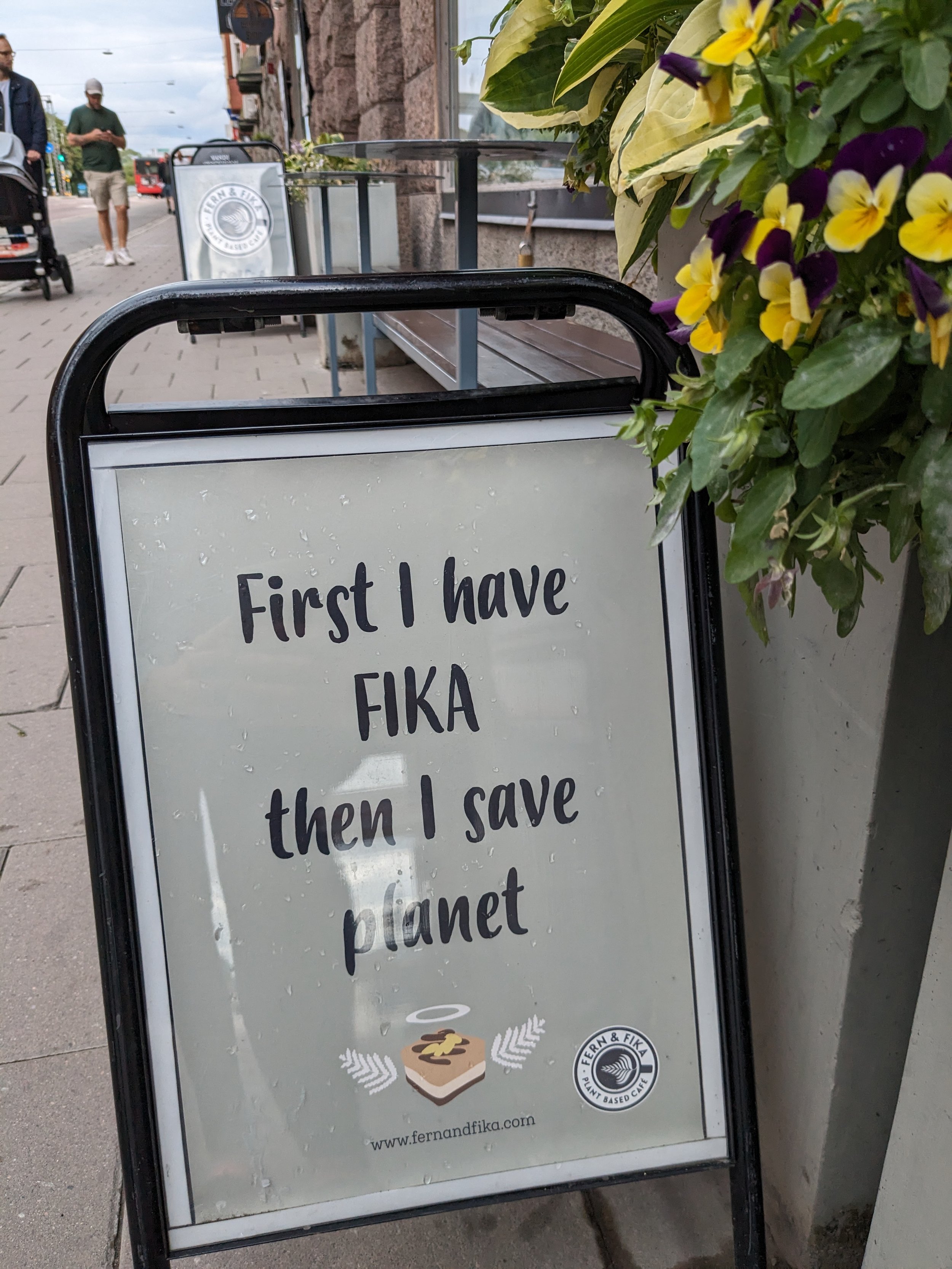
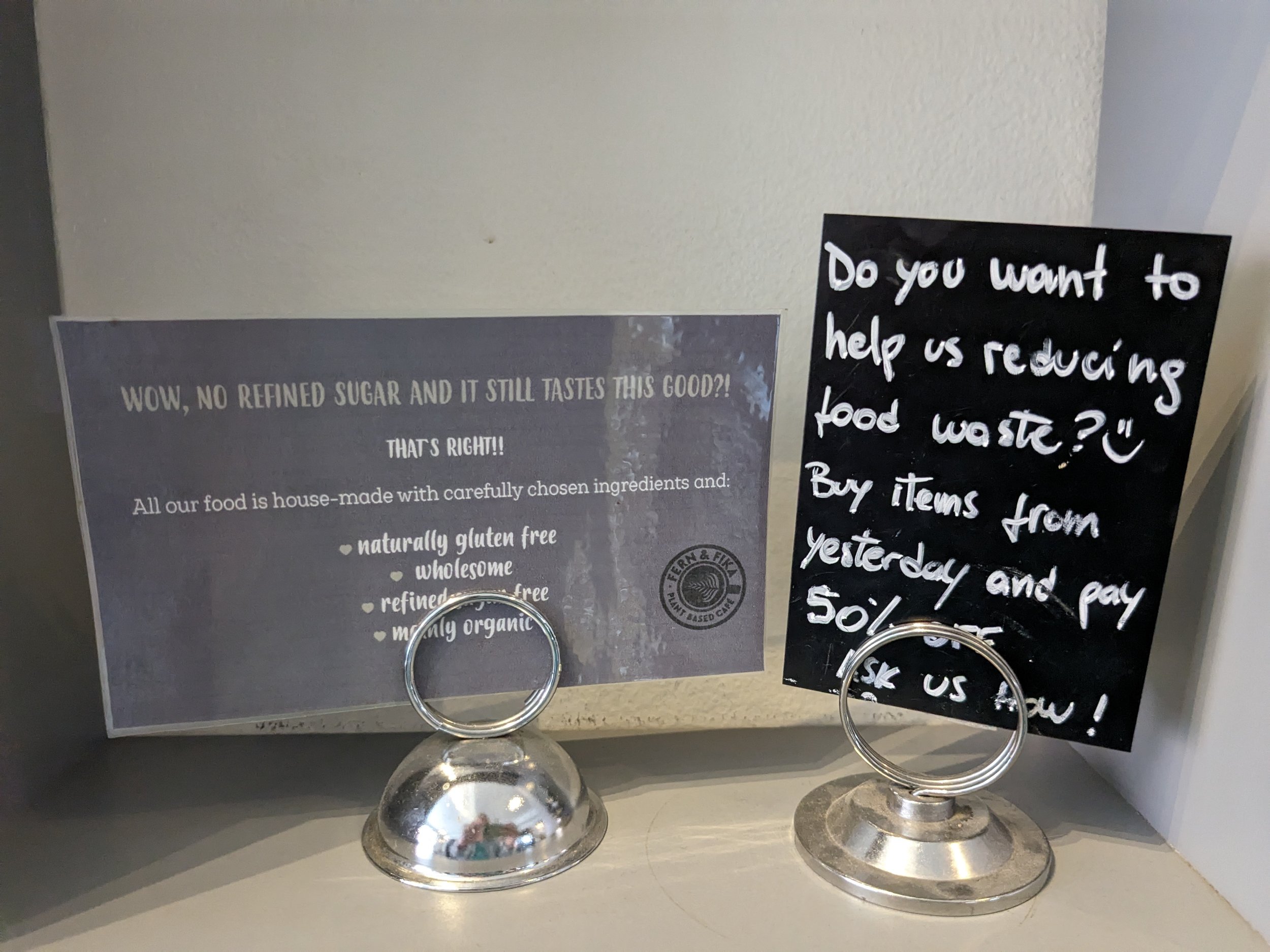
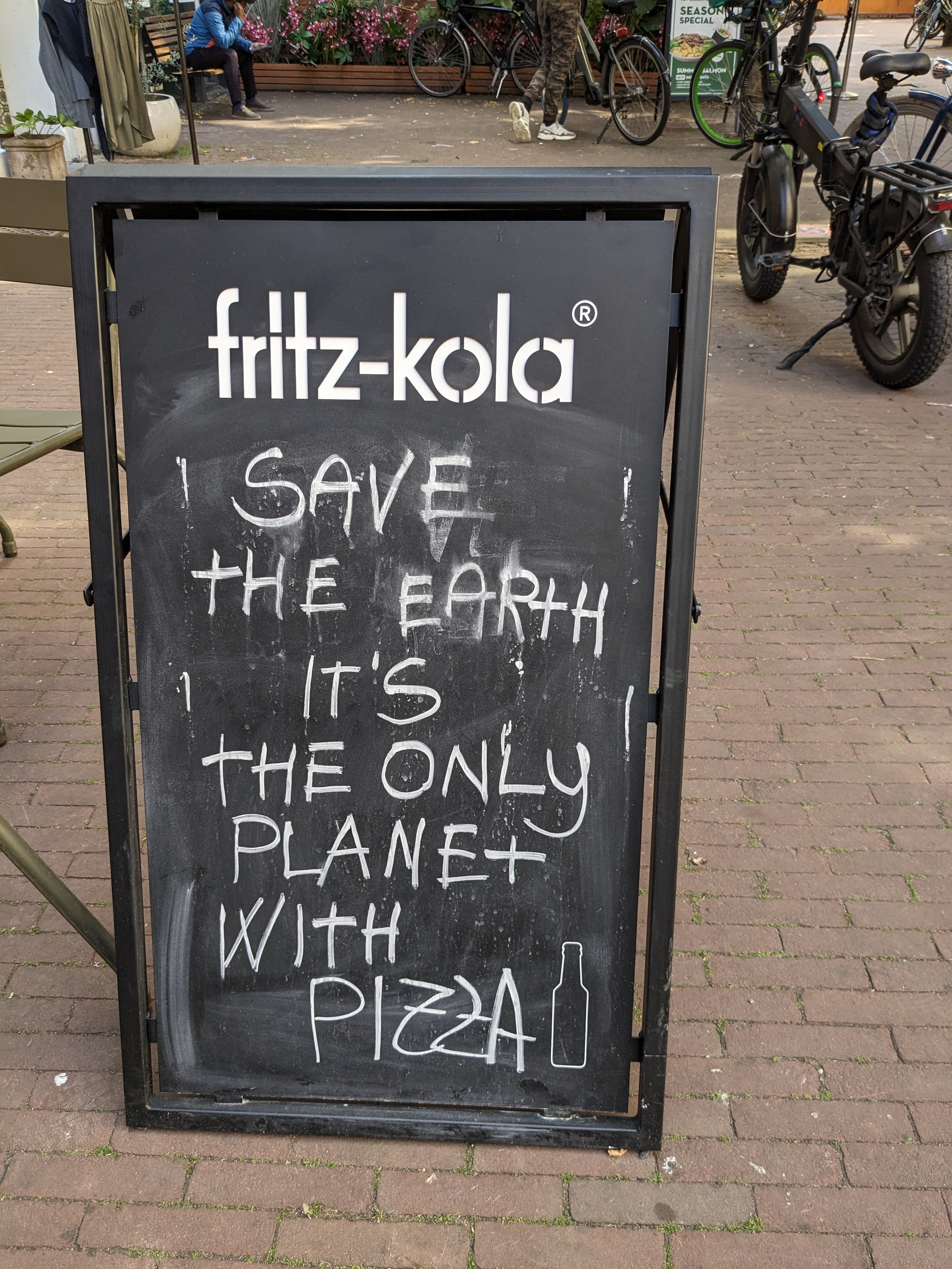
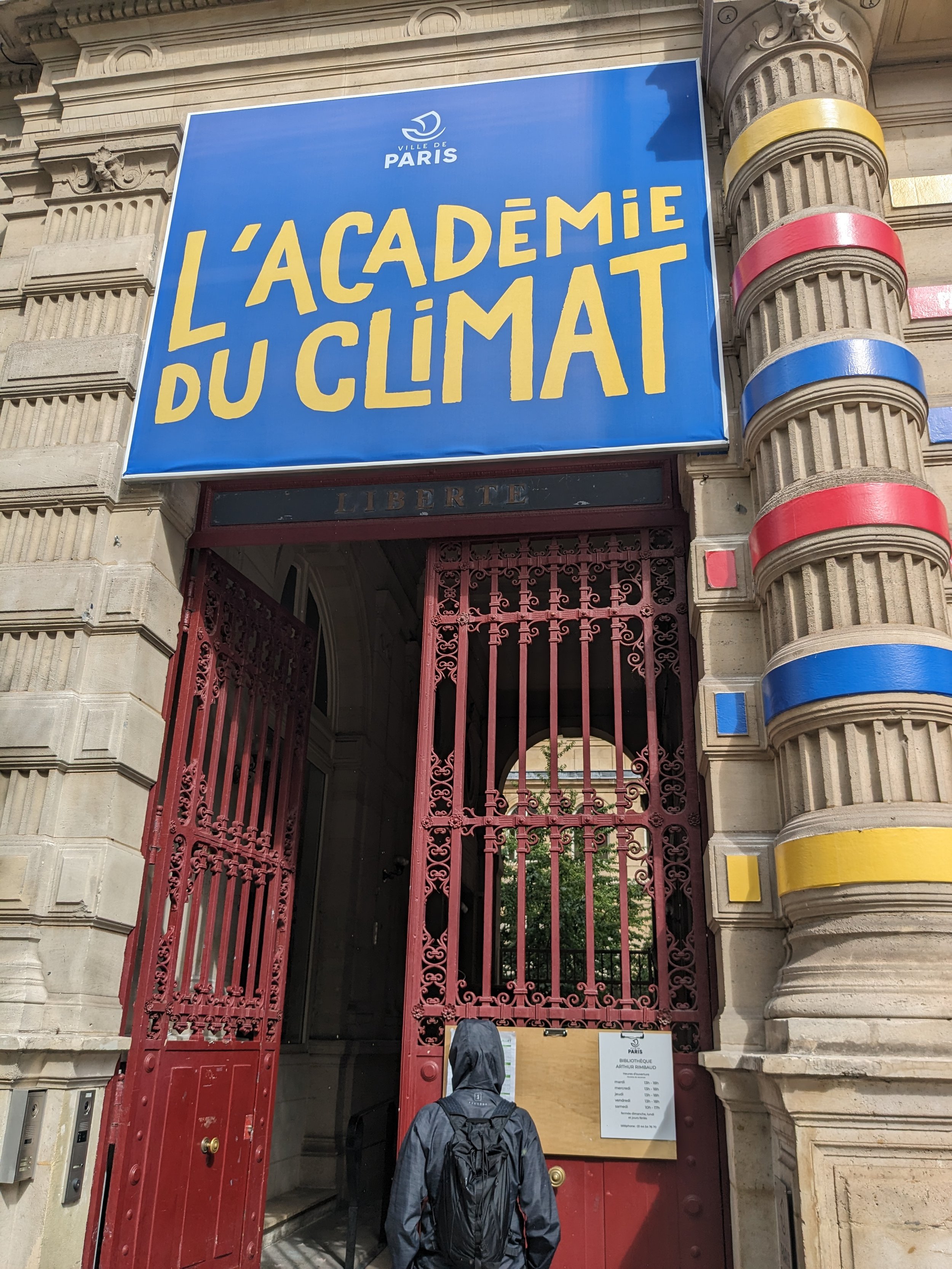
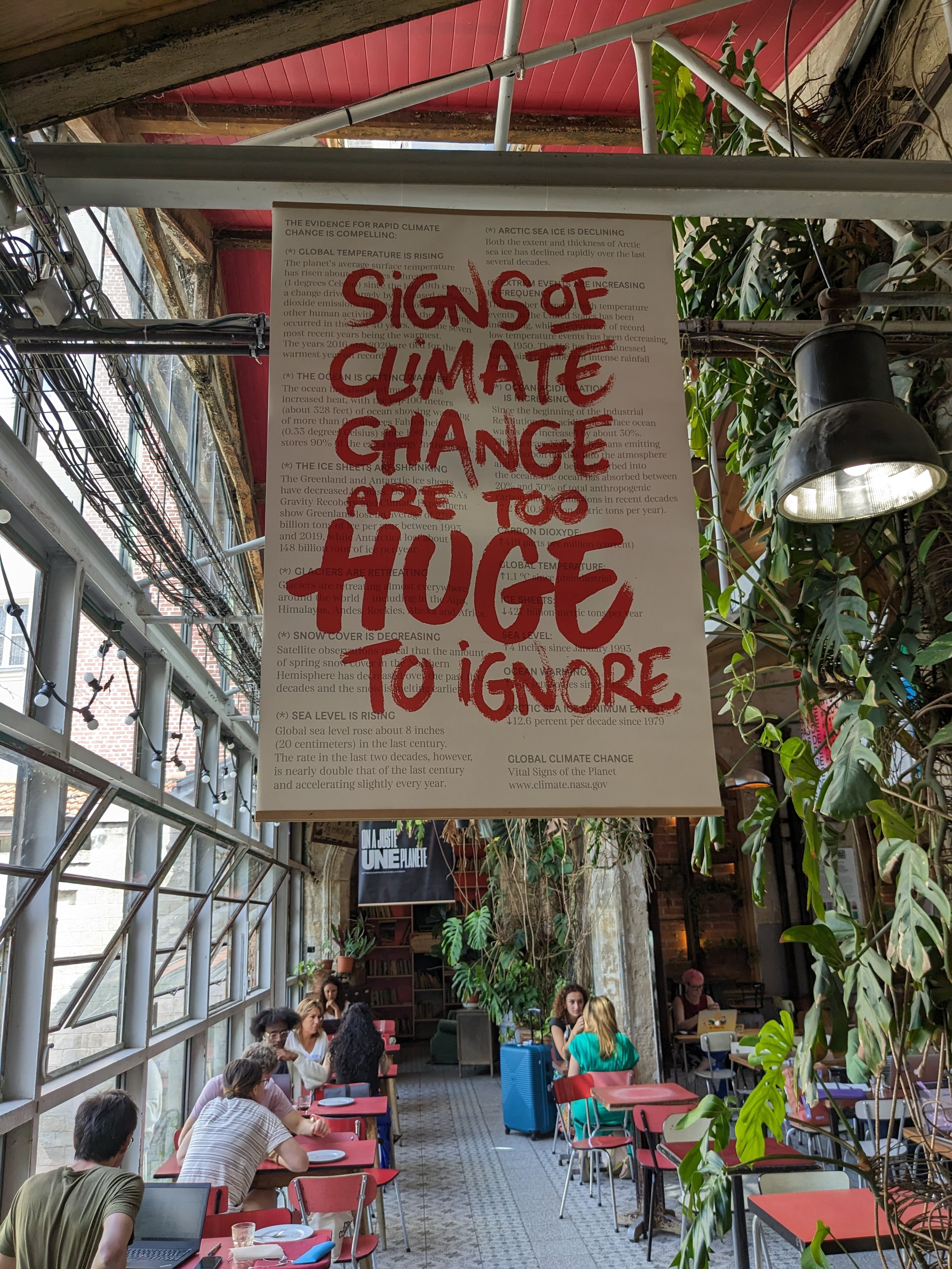
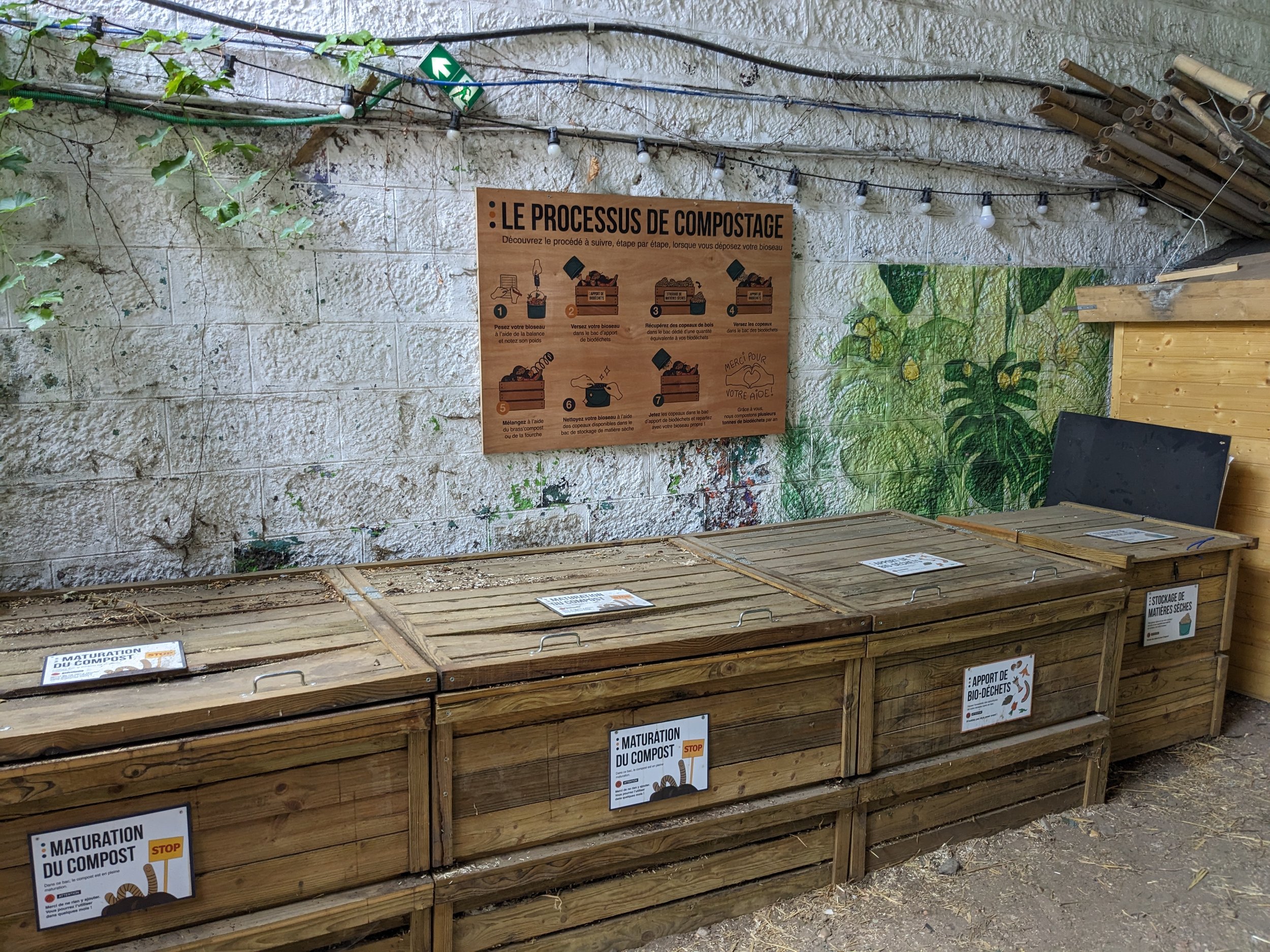
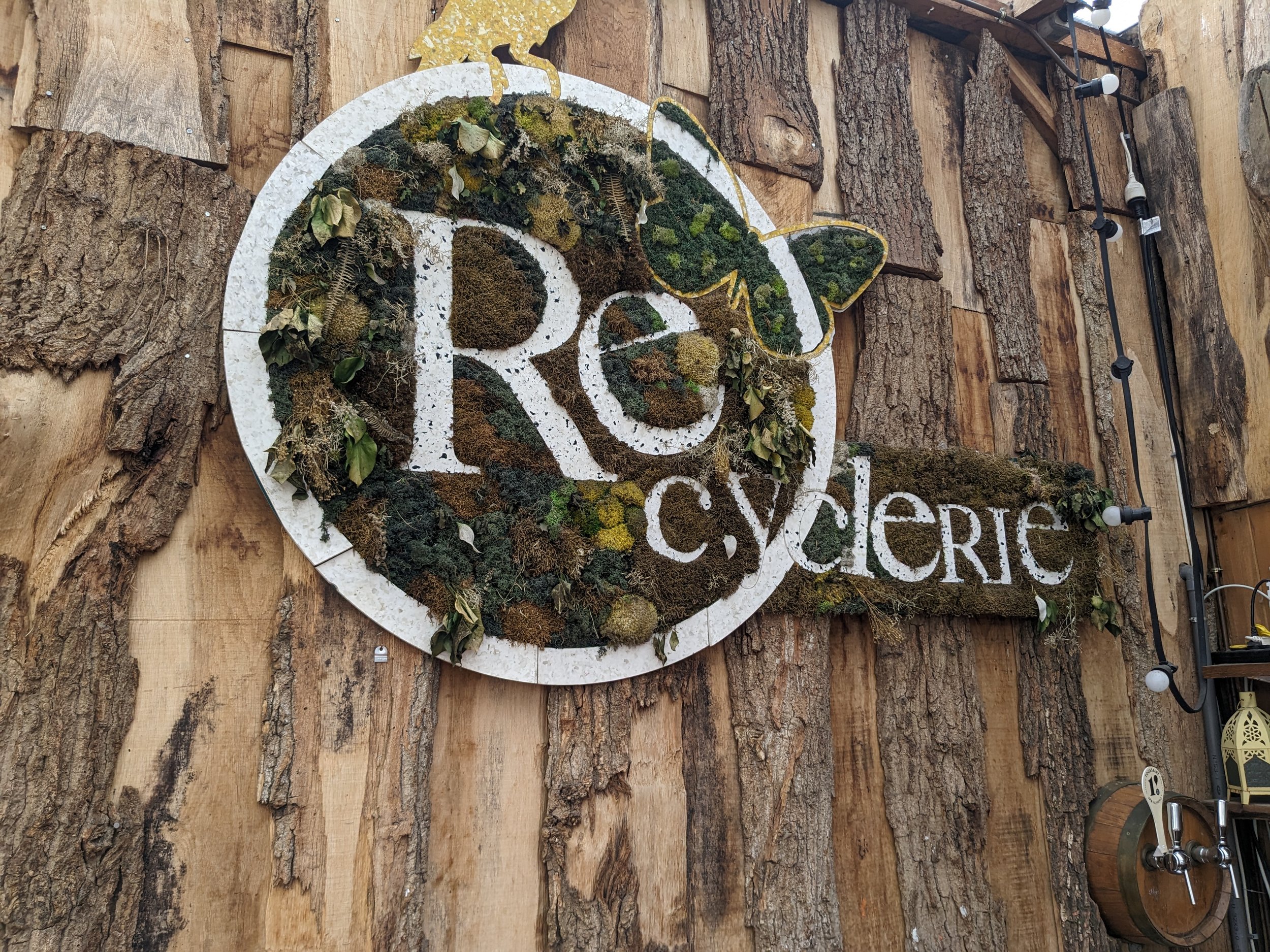
Organics Recycling
When it comes to organics recycling, I felt lost and disappointed by the provided service in most of the countries we visited, with the exception of Denmark and a few restaurants. Even in Amsterdam, where I expected to see innovative sustainability initiatives, there was an underwhelming lack of focus on organics recycling. To be fair, my focus here in California has been mainly around food waste prevention and the newly implemented organics recycling legislation, SB1383, but I still expected to see more in this area throughout our trip. If the countries we visited had provided organics recycling services and separation it was not apparent as a traveler, even while staying in residential Airbnbs.
Upon further research here are some country specific details:
France: Local authorities in France must provide businesses and residents with organic waste separation by Jan. 1, 2024. In 2015 France began enforcing mandatory edible food recovery guidelines for supermarkets and commercial generators.
Belgium: Mandatory food waste separation (in orange bags) began rolling out in the capital Brussels in May 2023.
The Netherlands: In 2022, The Netherlands ranked 5th highest in the EU for residential food waste, but the government is dedicated to reducing organics waste by 50% by the year 2030.
Germany: Curbside bins for organics have been available in certain areas of Germany since 2012 for residents and commercial operations. The Federal Ministry of Agriculture presented a strategy for reducing food waste across Germany in 2019 and plans to roll out the implementations by sector.
Denmark: In 2017 a citywide program was launched in Copenhagen servicing the 300,000 households with curbside organics collection bins. “Since 2020, the 98 Danish municipalities are required to follow common recycling rules, where all inhabitants and companies must sort waste into ten factions to work towards the ambitious recycling target of 74% of all household waste being recycled by 2024.” SOURCE
Sweden: Many municipalities in Sweden provide organics recycling resources, but Stockholm is behind in implementing mandatory food waste reduction strategies and curbside collections. The Swedish government has set a goal to reduce food waste 20 weight per cent per person from 2020-2025.
Norway: In 2017 the Norwegian government followed the EUs example and provided a Voluntary Agreement on Food Waste Reduction. “The agreement is a voluntary agreement signed by 5 ministries and 12 sector organizations in 2017, with the objective to reduce edible food waste by 50 percent within 2030.” SOURCE
Refilleries and Secondhand
I was able to visit plastic-free, zero waste lifestyle shops in many of the countries we visited. I also visited a few second-hand shops and even thrifted a few new-to-me clothing items while in Copenhagen and Stockholm. Here are a few that stood out to me.
Dille and Kamille: Amsterdam, zero waste shop
Little Plant Pantry: Amsterdam, zero waste grocery
Kobenhavn K: Copenhagen, second-hand clothing
Cafeteket: Vintage and second-hand goods, vegan cafe
Stadsmission’s Second Hand: Stockholm, second-hand clothing and goods
HUMANA Second Hand: Stockholm, second-hand clothing
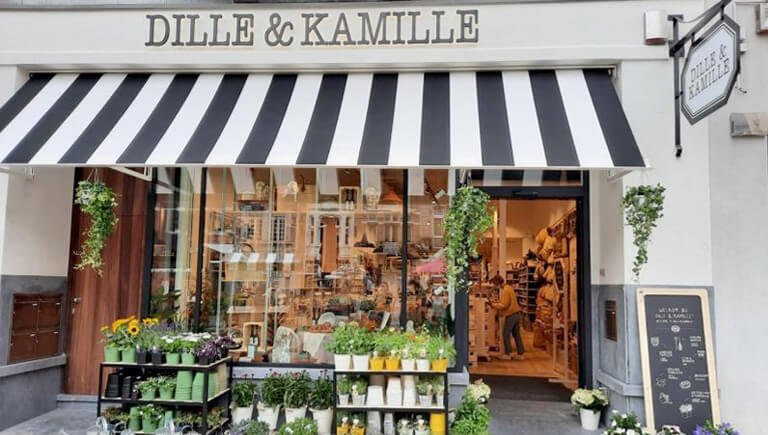
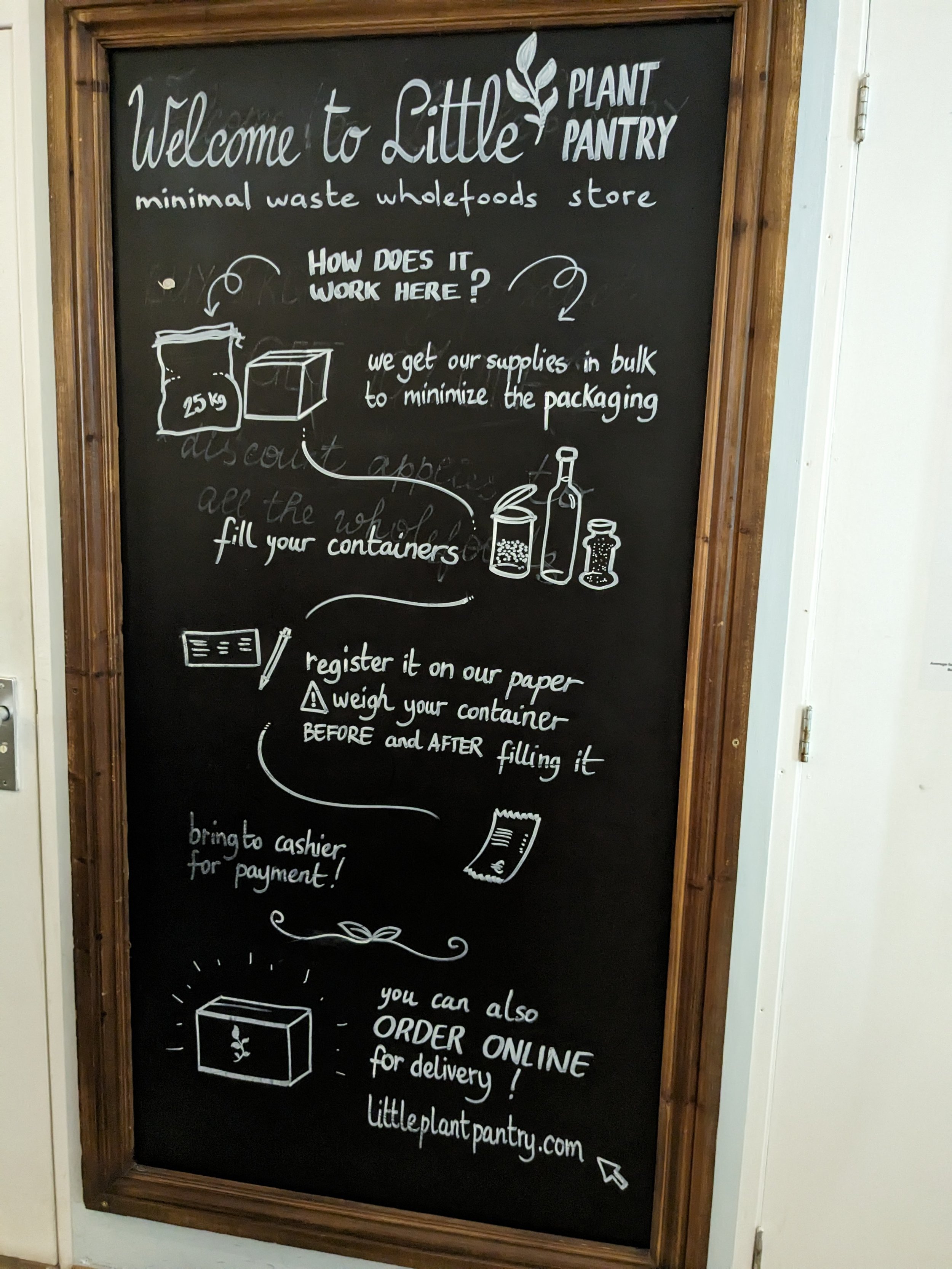
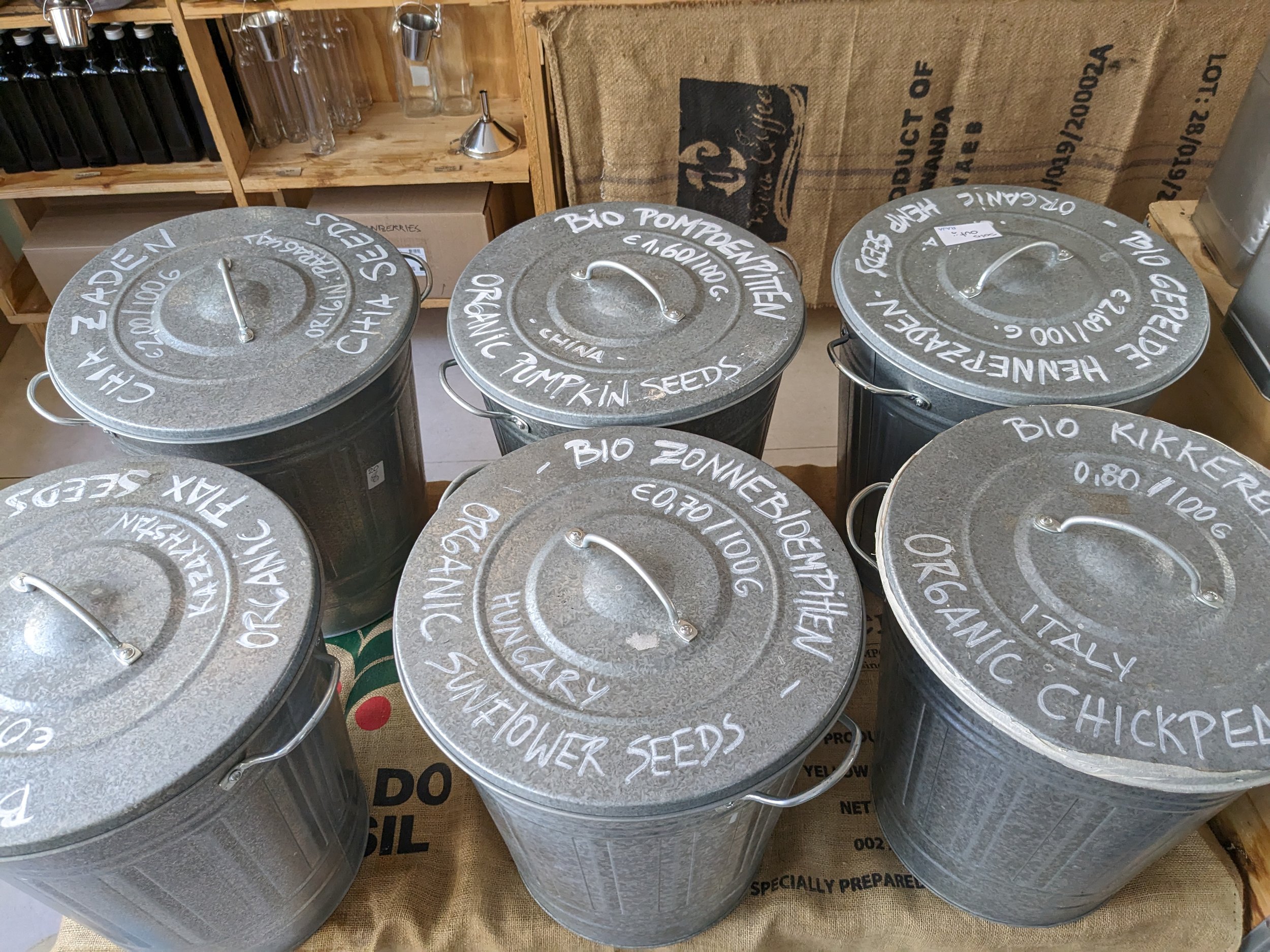
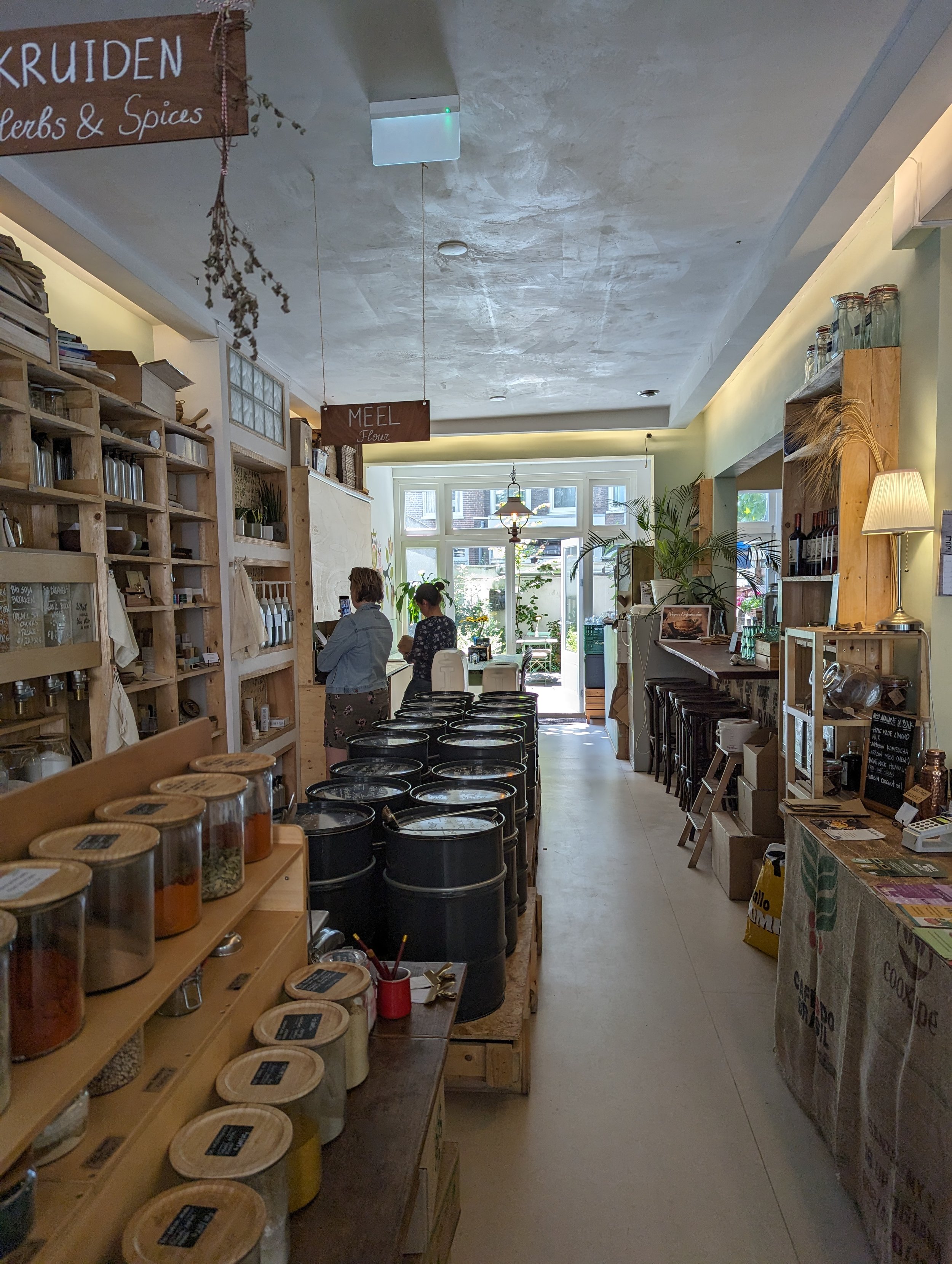
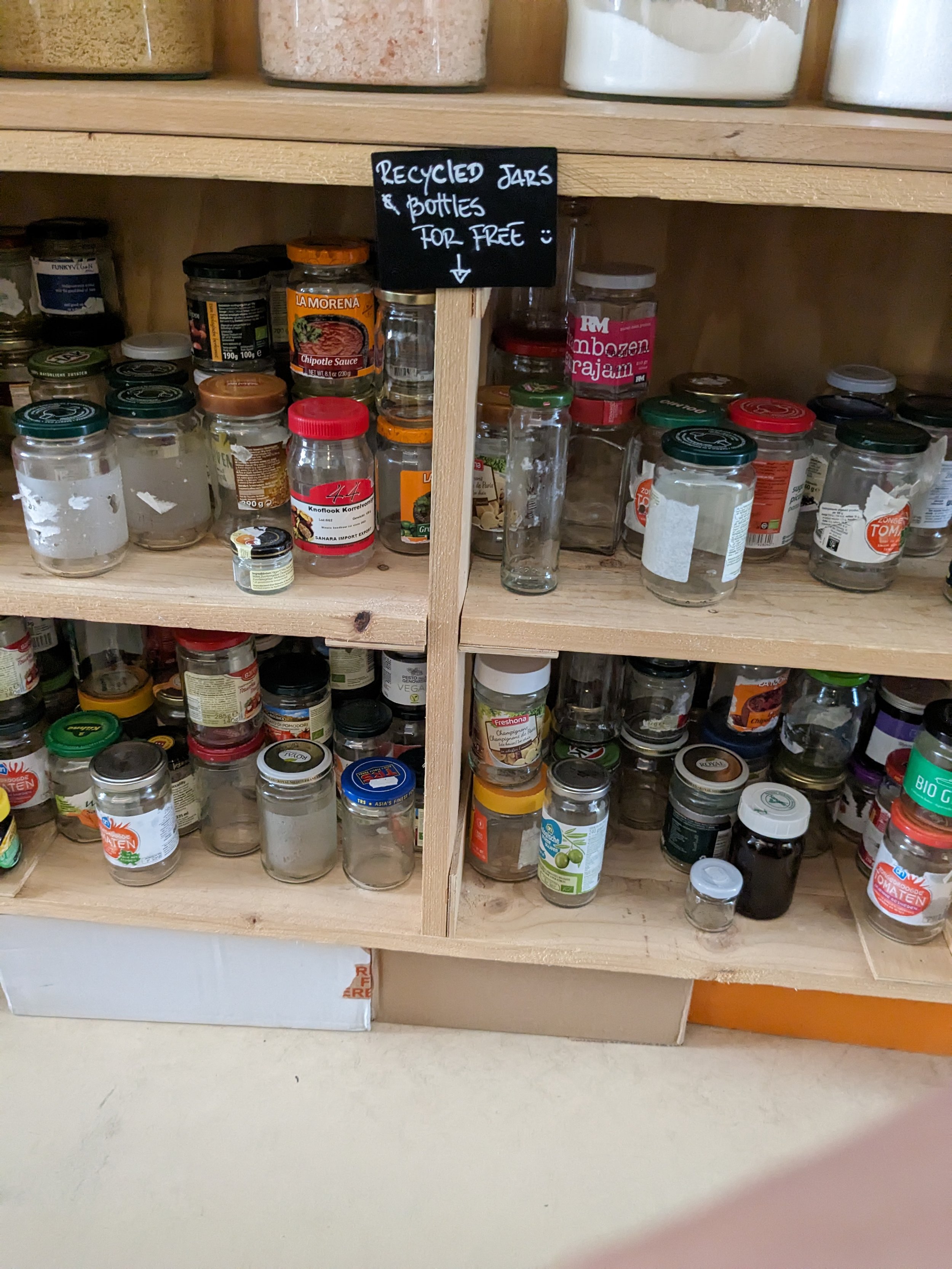

Conclusion
I was correct in thinking that during our travels across seven different European countries I would experience exciting sustainability practices, but what I am most grateful for is my renewed appreciation for California’s progressive policies and the inspiring environmental community here in San Diego. Overall, Europe’s focuses on green transportation, renewable energy and food waste prevention are propelling them towards meeting important milestones set forward by the Paris Climate Agreement. I am excited to continue travelling and learning how we can take climate action together on a local and global level.
Where have you traveled and what are some sustainability initiatives you found interesting or inspiring?
Liz Murphy, SIS co-founder
Sources:
https://www.trade.gov/country-commercial-guides/france-energy-eng#:~:text=Renewable%20energy%20is%20taking%20on,(%247.06%20billion)%20in%202021.
https://www.eia.gov/state/?sid=CA#:~:text=In%202022%2C%20renewable%20resources%2C%20including,supplied%20almost%20all%20the%20rest.
https://www.iea.org/reports/norway-2022/executive-summary
https://www.heliox-energy.com/blog/the-net-zero-transition-in-green-transport-winners-and-losers-a-heliox-study
https://elbil.no/english/norwegian-ev-policy/
https://www.government.nl/topics/food/cutting-down-on-food-waste
https://www.pocacito.org/wp-content/uploads/2019/06/UBA_190514_US-ecologic-institute_Bioabfall.pdf
https://sweden.se/climate/sustainability/swedish-recycling-and-beyond

